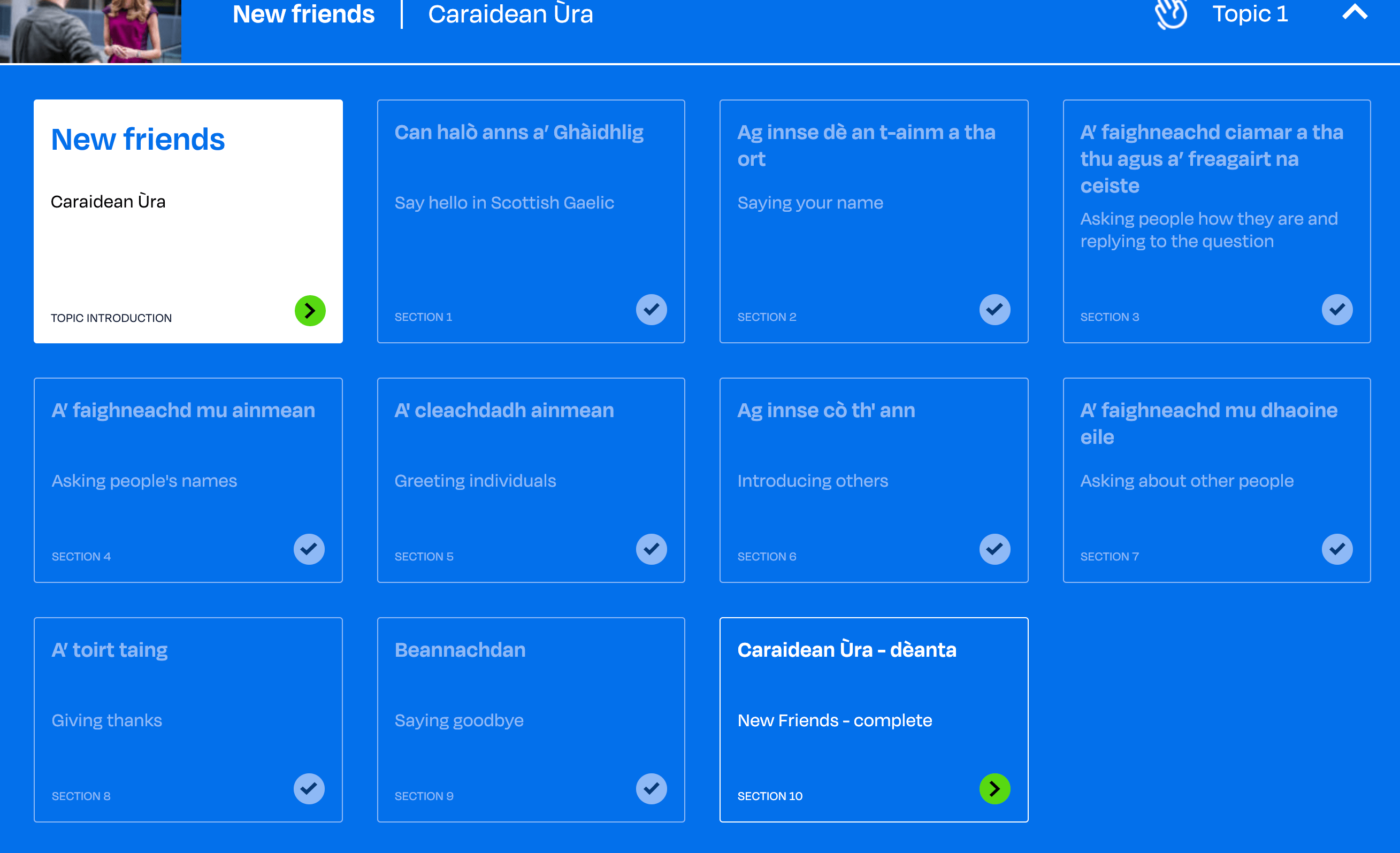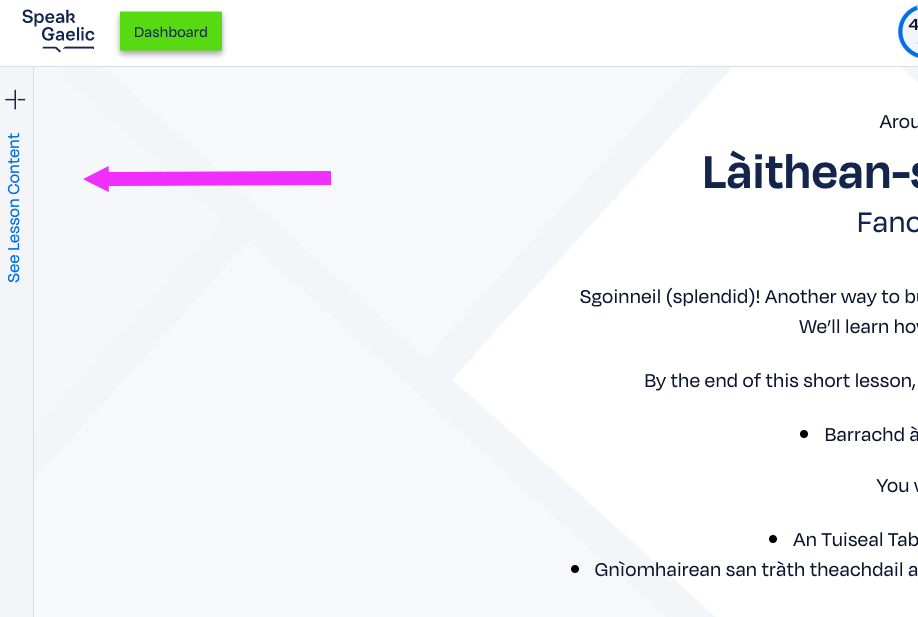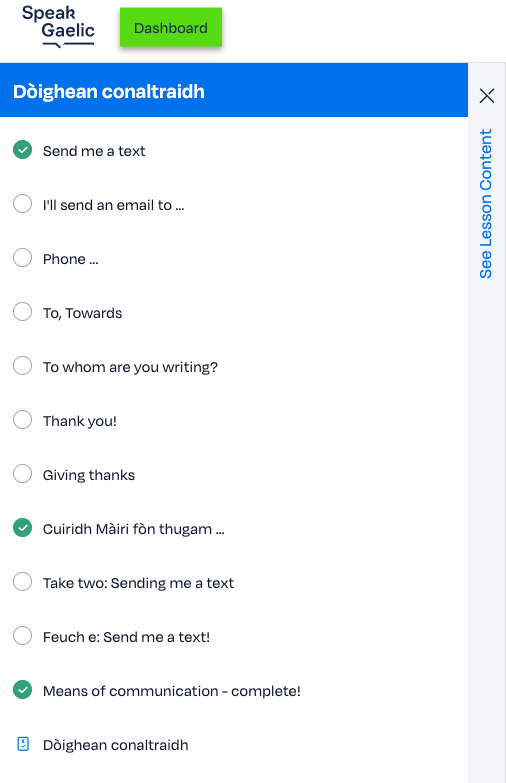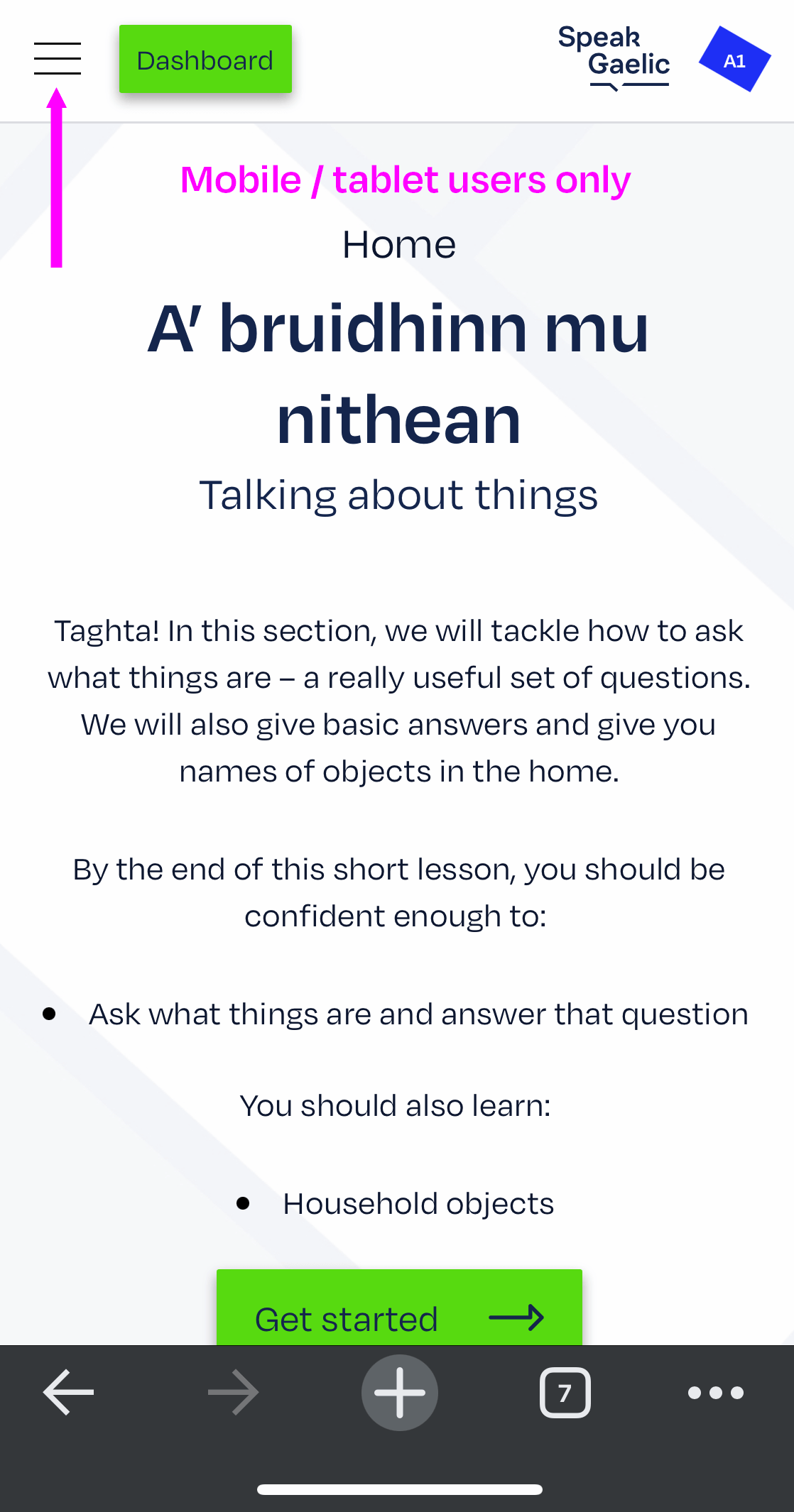Cò bhuannaicheas agus cò chailleas?
Who will win and who will lose?
We saw in A2 Cuspair 10 there is a special form of the future tense which follows the relative particle: a. We see this with the questions: Ciamar a, Cuin a, Cia mheud a, and also with the questions Dè and Cò, and with Ma (If).
| CHAILLEAS | BHUANNAICHEAS | AN CAILL …? | AM BUANNAICH …? |
| Ciamar a chailleas? | Ciamar a bhuannaicheas? | Càit an caill …? | Càit am buannaich? |
| Cuin a chailleas? | Cuin a bhuannaicheas? | Mura caill | Mura buannaich … |
| Cò chailleas? | Cò bhuannaicheas? | ||
| Ma chailleas | Ma bhuannaicheas … | ||
| Nuair a chailleas | Nuair a bhuannaicheas |
Ma bhuannaicheas …
Regular verbs have a relative future form, which is used after the relative particle: a. This is seen in relative clauses, and with question words, including Dè and Cò, and with Ma (If), even though the relative particle a is dropped because these all end in a vowel. The relative future form is made by leniting the root form of the verb and adding an –as/–eas ending:
Cuin a bhuannaicheas sinn?
When will we win?
Buannaichidh sinn uair no uaireigin.
We’ll win at some time or another.
Dè ghabhas dèanamh?
What can be done?
Cha ghabh sìon dèanamh.
Nothing can be done.
Cò chailleas an geama?
Who will lose the game?
Caillidh Alba an geama, tha eagal orm.
Scotland will lose the game, I’m afraid.
With càite (where) and mura (if not) we use the question (dependent) form as we do in other tenses:
Càit an coimhead sinn air a’ gheama?
Where will we watch the game?
Coimheadaidh sinn air aig an taigh.
We’ll watch the game at home.
Mura buannaich Alba tha mise a’ dol dhachaigh!
If Scotland don’t win I’m going home!




